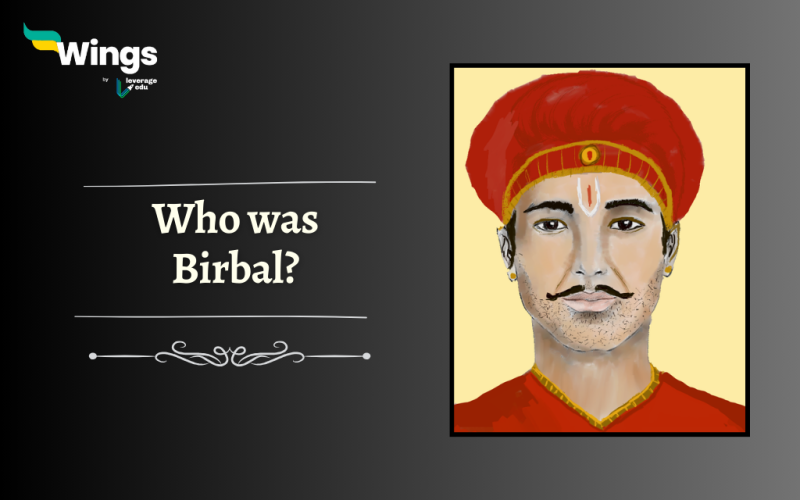Birbal stands out as a symbol of wisdom, intelligence and wit. Birbal rose to fame as a trusted advisor and confidante of the Mughal Emperor Akbar. His legendary tales of cleverness and sagacity have been passed down through generations. The stories of Akbar and Birbal have been floating throughout history, but who is Birbal and why is he still remembered and revered? Let’s pass through the canals of childhood stories with pieces of evidence and find more information about Birbal.
Who is Birbal?
As we all are familiar with the intelligence and wit that Birbal carried, he was a renowned Mukhya Senapati and Brahmin advisor during the rule of the great Mughal Emperor Akbar.
- The real name of Birbal was Mahesh Das and is rumoured to be born in the year 1528.
- Born in the small village of Ghogra in Uttar Pradesh, his father’s name is Ganga Das and his mother’s name is Anabha Davito.
- He showed exceptional intelligence from a young age and was sent to study at a local school.
- His thirst for knowledge led him to become well-versed in various subjects like Sanskrit, Hindi and Persian and specialised in poetry in the language of Braj, philosophy, music and politics.
- He was serving as “Brahma Kavi” under the Rajput king Raja Ram Chandra of Rewa.
- Birbal’s sharp intellect caught the attention of Emperor Akbar, who invited him to his court.

Rise to Prominence
It is uncertain when Birbal first met Emperor Akbar and joined his court, but it is believed that they met between 1556 and 1562.
- Within a few years of his appointment, Birbal became the “Kavi Priya” or the Emperor’s poet laureate.
- Akbar gave him the name ‘Birbal’ along with the title of “Raja”.
- The name Birbal is derived from Bir Bar or Vir Var, which means quick thinker.
- According to S. H. Hodivala, this name may have been taken from a character in the folk tale Vetal Panchvinshati, which features a loyal courtier named Vir Var.
Akbar had a love for literature and encouraged the translation of works from Sanskrit and other local languages into Persian. He also gave titles to his ministers according to their special skills and thus Birbal was named as Raja Birbal due to his intelligence and quick wit.
It is believed that he carried a private Diary to keep all the details about Akbar’s administration and contained his feelings and thoughts too. Only Akbar could access the diary as he became such a close confidante.
Also Read – Birsa Munda: Life and his Ulgulan Movement
Why is Birbal so Famous?
Birbal’s reputation grew over time and he became one of Akbar’s nine jewels, known as Navaratnas of Akbar. He was also bestowed with the title of “Diwan-i-Khas”
- He served as a military figure, religious advisor and a close friend of the Emperor for nearly 30 years.
- Birbal’s first military role was in 1572 when he was part of a large army sent to help Husain Quli Khan against an attack from Akbar’s brother, Hakim Mirza.
- Despite having no military background, Birbal actively participated in Akbar’s campaigns and was given leadership positions. He was also a trusted companion who accompanied the Emperor during his Gujarat campaigns.
- Abu’l-Fazl ibn Mubarak, a historian of the courts and a member of the navratna, wrote about Birbal in his accounts, stating that he held twenty-five honorific titles and held the rank of a commander of two thousand.
- Despite being fourteen years older than Akbar, Birbal had a close relationship with him and was considered one of the brightest jewels of Akbar’s court.
- He was considered the eye and ear of the administration of Akbar and was the only courtier to have a two-storeyed house at Fatehpur Sikri near Akbar’s palace. One of the seven gates of the fort is named “ Birbal Gate”.
Also Read – Complete Mughal Empire List: An Overview
Legacy of Birbal
Birbal’s legacy lives on in the form of numerous folk tales and anecdotes that highlight his wisdom and cleverness. These folklores have mainly passed through oral traditions.
- These stories, often involving riddles, puzzles, and moral dilemmas, continue to captivate readers and listeners of all ages.
- From outsmarting jealous courtiers to solving conundrums posed by Akbar himself, Birbal’s wit and intelligence have continued in Indian folklore.
Stories and tales about Akbar and Birbal are legends that our grandmothers have recited so as to make us aware of the intelligentsia that one can possess. Birbal passed away during the battle of Malandari Pass in 1586 while trying to resolve a conflict that had erupted among the Afghan or Pashtun tribes in Northwest India. Akbar was deeply saddened by the loss of his clever and intelligent friend and mourned his death for a significant period.
Relevant Blogs
This was all about who is Birbal. If you want to know more about topics like this, then visit our general knowledge page! Alternatively, you can also read our blog on general knowledge for competitive exams!
 One app for all your study abroad needs
One app for all your study abroad needs













